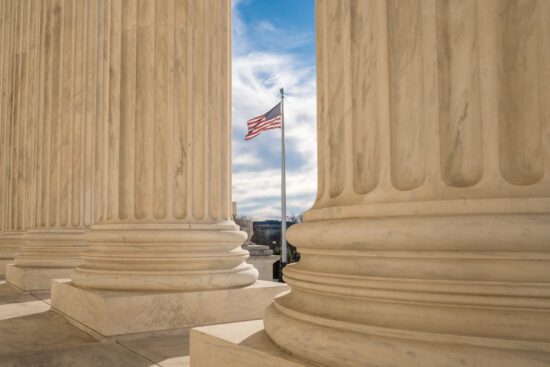Public resistance to tax increases, the political power of gambling interests, and the growing pursuit of easy money have led to the legalization of some form of gambling in the District of Columbia and every state except Utah and Hawaii. An enormous increase in the amount of money Americans are betting has accompanied the wildfire growth of gambling in America. In 2012, Americans spent $91.9 billion on all forms of legal gambling in the U.S. and lost $37.3 billion. It is time to take a closer look at this issue and to develop a response.
The Issue
Since 1890, the Southern Baptist Convention has formally expressed its opposition to legalized gambling. Over the course of more than 100 years, the Convention has adopted 14 resolutions on this issue. The most recent resolution was passed in 1997. It calls on all Christians “to exercise their influence by refusing to participate in any form of gambling or its promotion.” In addition, the resolution urges “political leaders to enact laws restricting and eventually eliminating all forms of gambling and its advertisement.”
While the advocates of legalized gambling promote it as an economic development tool and as a supposedly painless source of tax revenue, there are numerous biblical, ethical, and social reasons why gambling is not an acceptable activity. Below are some of the most obvious reasons.
Gambling Violates Biblical Principles
While the Bible contains no “thou shalt not” in regard to gambling, it does contain many insights and principles that indicate that gambling is wrong. For example, the Bible emphasizes the sovereignty of God over human events (Matt. 10:29-30); whereas gambling looks to chance and luck. The Bible indicates that man is to work creatively and use his possessions for the good of others (Eph. 4:28); gambling fosters a something-for-nothing attitude. The Bible calls for careful stewardship; gambling calls for reckless abandon. The Bible condemns covetousness and materialism (Matt. 6:24-34); gambling has both at its heart. The moral thrust of the Bible is love for God and neighbor (Matt. 22:37-40); gambling seeks personal gain and pleasure at another person’s loss and pain.
Gambling Contributes to Crime and Corruption
The growth of crime in those states and cities that legalize gambling is easily demonstrated. The most comprehensive study to date concludes that after three or four years, counties with casino gambling experience increases in rape, robbery, aggravated assault, burglary, larceny, auto theft, and human trafficking compared to counties without casinos.
Many careful studies on gambling point out frequent incidents of corruption related to gambling. Police are the most immediate targets for corrupting influences. Since police operate at the entry point of the criminal justice system, they are both more available and more desirable as targets of gamblers seeking to make payoffs and bribes. But gambling corruption is by no means limited to the police. Elected officials as well as individuals in the gambling business are also subject to the corrupting influence of gambling.
Organized crime benefits from the expansion of gambling as well. William Webster, a former FBI director, said, “I really don’t see how one can expect to run legalized gambling anywhere without serious problems . . . . Anytime organized crime sees an opportunity to put a fix on something, to get an edge on something, it’ll be there. And gambling is still the largest source of revenue for organized crime.”
Gambling Disrupts the Economy
Until recently, business and labor leaders have led many of the successful efforts to prevent gambling from entering states and communities because they realized that gambling is bad for the economy and especially bad for relatively low income laborers. Unfortunately, many current business and labor leaders have become either neutral or supportive of gambling because of its alleged economic benefits.
However, increased gambling always results in increases in unpaid bills, embezzlement, bankruptcy, and absenteeism from jobs. In addition, gambling does not help a state’s economy in any appreciable way. A lottery returns to the state an average of only about 32 cents of every dollar taken in. The remainder goes to prizes and administration. In only three or four states does the revenue from lotteries, casinos, pari-mutuel betting, and any other existing forms of gambling contribute more than 3 percent to a state’s total budget. The minimal contribution that gambling makes to a state’s economy is more than offset by the social and personal problems it creates.
Gambling Destroys Lives
Gambling corrupts and hurts people in many ways. The something-for-nothing craving which gambling stimulates undermines character. The hope of winning a fortune causes some to embezzle and steal for a gambling stake. Gambling appeals to the weakness of a person’s character and develops recklessness, callousness, and covetousness. Some gamblers become psychologically addicted to gambling so that they cannot stop gambling and find themselves in a headlong plunge into personal catastrophe.
Gambling Hurts Innocent People
Gambling harms not only those directly involved in gambling but innocent people as well. Especially vulnerable are members of the gambler’s family. Gambling creates financial problems and special tensions in the home. It is difficult to determine whether the gambler or his or her spouse is more physically, mentally, and emotionally damaged by the ravages of a gambling binge.
The children of gamblers suffer when a gambling parent loses the money for such necessities as food, rent, clothing, and medicine. They suffer when a gambling parent abandons them in cars, with neighbors, or in gambling daycare centers while they satisfy their gambling addiction. Communities are hurt by the presence of gambling as increasing numbers of people become addicted to gambling and prey on their communities to support their gambling addictions.
Gambling Defies Justification
Among the arguments advanced to justify gambling is the one that says that all of life is a gamble or a risk. But risk-taking in gambling is different from the risks involved in the normal routine of life. The risks in gambling are artificially created. In other ventures, the risk is part of the creative process. For example, the contractor risks labor and capital to build a house and make a profit. Unlike the gambler, he assumes a risk that is necessary to society’s economic life, and he relies on more than chance in seeking to make a profit.
It is also argued that some people like to spend their recreation money betting on horses or playing slot machines, just as others prefer to spend theirs for a round of golf or a movie. Gambling obviously provides a kind of recreational excitement for some, but the cost to individuals, families, the economy, and society is too high to justify it.
Some Answers
Seen in this light, gambling is personally selfish, morally irresponsible, and socially destructive. Therefore, gambling must be vigorously resisted. Such resistance requires an understanding of the problem, a workable plan of attack, and a personal commitment to work against gambling. The gambling problem results from two interrelated factors: (1) Many people have a desire, often a compulsion, to gamble, and (2) most of these people have access to gambling opportunities.
The ultimate goal of a plan of action is to control the desire to gamble and eliminate the access to gambling opportunities. When the desire to get something for nothing and the opportunity to gamble go hand in hand, resistance to one requires resistance to the other. To attempt to eliminate the desire without abolishing the opportunity is to invite failure. It is a matter of record that as gambling becomes more accessible, more people gamble. Thus, legalization is not the answer to the gambling problem. Instead, it is one primary cause of the gambling problem.
Any adequate plan to deal with gambling must be both extensive and comprehensive. It must be extensive enough to include the spiritual, educational, and legal approaches. It must be comprehensive enough to incorporate the family, the world of work, community clubs and organizations, the church, and government.
Evangelization
A vibrant, growing relationship with Jesus Christ is the only adequate basis for a stable personal life and a sound society. Members of Gamblers Anonymous acknowledge that in order to prevent relapse it is necessary to experience certain personality changes within themselves, and that this involves response to spiritual principles in order to make the changes permanent.
Moral arguments, economic self-interest, guilt, shame, and other lesser motivations will not prevail against the gambling urge or solve society’s gambling problem.
Education
Families, churches, schools, labor unions, businesses, and community organizations can all contribute to an educational program in opposition to gambling. Such education should be specifically designed to result in action. The dangers of gambling should be exposed in such a dramatic way that people will cast it out of their lives and communities. People can be led to understand that it is in their best personal interest to refrain from gambling and that it is in society’s best interest publicly to oppose gambling.
Rehabilitation
For those addicted to gambling, education alone will prove powerless to deal with their problems. They need psychological help. People gamble for many reasons, and no simple and easy solution covers all cases. Pastoral counseling, psychological care, or participation in a group like Gamblers Anonymous can prove helpful. The community and the church can sometimes work together in providing programs to seek out and help the compulsive gambler and his or her family.
Legislation
When gambling opportunities are available, both the reformed gambler and the potential gambler are tempted. Since gambling is corruptive and harmful, concerned citizens should work for laws to control and eliminate gambling. Effective legislation both by the states and by the federal government is needed.
Anti-gambling legislation will be effective only to the extent that it is backed up by effective law enforcement. Legislation without enforcement fails to deter gambling and stimulates disrespect for the law. A responsible public will insist on, and be willing to pay the price for, strict and efficient law enforcement. Further, the courts must be encouraged to take seriously gambling cases and levy appropriate sentences. For genuine gambling addicts, rehabilitation treatment can be far more effective than jail sentences.
Some Personal Answers
• Recognize that you cannot get something for nothing.
• Remember that in gambling somebody always gets hurt.
• Refuse to participate personally in even small or occasional gambling ventures.
• Get the facts about existing laws related to gambling, problems of enforcement in your area, and the current mindset on what changes are being made or should be made.
• Arouse public opinion to the fallacy of arguments for legalized gambling and to any weakness in the enforcement of existing laws.
• Bear testimony without being judgmental to friends or acquaintances who may gamble occasionally.
• Actively support laws, lawmakers, and law enforcement officials who oppose gambling.
• Work within civic, community, and business organizations to prevent their sponsorship of gambling in the community.






